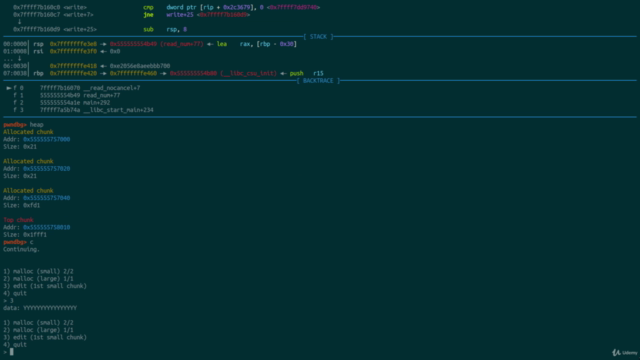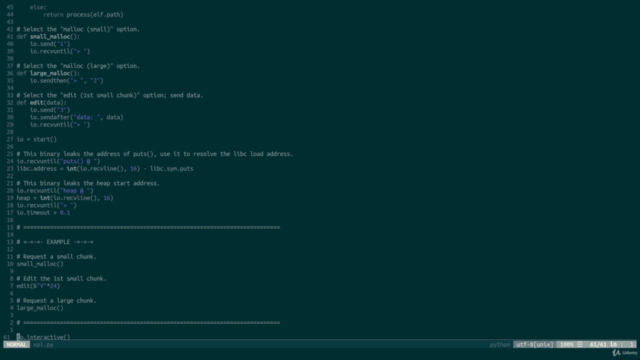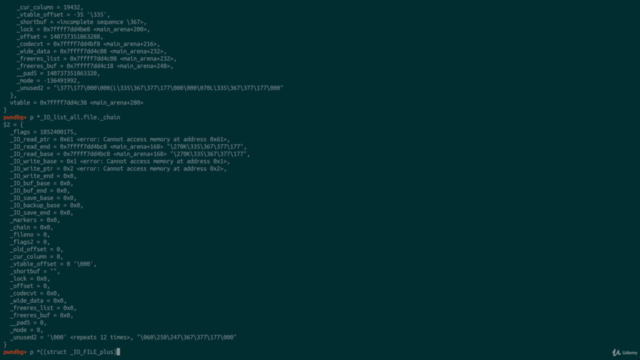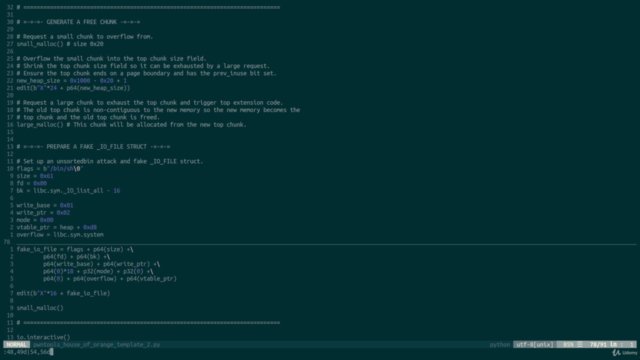Linux Heap Exploitation - Part 1

Why take this course?
👨💻 Unlock the Secrets of Memory Mastery: Linux Heap Exploitation - Part 1 with Max Kamper 🚀
Are you ready to dive into one of the most intriguing and critical areas of computer security? Welcome to "Linux Heap Exploitation - Part 1," where you'll embark on a journey through the complex world of GLIBC heap exploitation. This course, led by the seasoned expert Max Kamper, is designed for security enthusiasts, penetration testers, and anyone curious about mastering memory corruption vulnerabilities.
Course Highlights:
- Historical Context & Fundamentals: Understand the evolution of heap exploitation techniques from the "Unsafe Unlink" to the advanced "House of Orange." (🕰️)
- GNU C Library (GLIBC): Explore the intricacies of GLIBC, a crucial component of most Linux systems, and learn how it can be leveraged in exploitation. (📚)
- Practical Skills: Combine theory with practice by applying exploitation techniques to real-world scenarios using pwntools and pwndbg. (👨🏫🖥️)
What You'll Learn:
- Heap Exploitation Techniques: Gain a deep understanding of heap exploitation methods and how they can be used to compromise systems. (🔍)
- Hands-On Experience: Work on challenging problems and exercises that will test and refine your skills. (💪)
- Essential Tools: Learn to use pwntools and pwndbg to debug, develop, and exploit vulnerable binaries effectively. (🛠️)
- Safe & Unsafe Functions: Identify which GLIBC functions can be safely used and which can lead to vulnerabilities. (🚨)
- Heap Fengshui: Understand the layout of heap objects and how to manipulate them to your advantage. (🏠)
Course Outline:
- Introduction to Heap Exploitation: We'll kick off by discussing the history, importance, and potential of heap exploits in the security landscape.
- Understanding GLIBC's Memory Allocator: A deep dive into how GLIBC handles memory allocation, and how this can be abused.
- Heap Overflows & Padding: Learn how to perform buffer overflows within the heap context and understand the role of padding in exploits.
- Use-After-Free (UAF) Exploitation: Discover how to exploit UAF vulnerabilities to achieve code execution.
- Heap Spraying & ROP: Master the art of spraying large amounts of data on the heap and constructing a Return-Oriented Programming (ROP) chain to achieve arbitrary code execution.
- Exploit Development: Apply your knowledge by developing your own exploits against practice binaries designed to challenge your skills.
Join us for "Linux Heap Exploitation - Part 1" and transform your understanding of memory corruption vulnerabilities into actionable exploitation techniques. Whether you're a seasoned security professional or just starting out, this course will elevate your game and sharpen your skills in the world of cybersecurity.
Enroll now and step into the arena where only the most adept can turn chaos into command! 🛡️👾
Course Gallery




Loading charts...
Comidoc Review
Our Verdict
Linux Heap Exploitation - Part 1 offers a hands-on deep dive into GLibC heap exploitation techniques, with clear explanations and practical challenges. Though it assumes foundational knowledge in debugging and GDB usage, this course is an excellent choice for aspiring pwners eager to build their skillset in binary exploitation while working through progressively more challenging exercises.
What We Liked
- Comprehensive coverage of GLibC heap exploitation techniques, including House of Force, Fastbin Dup, Unsafe Unlink, Safe Unlink, and House of Orange
- Hands-on learning with practical challenge binaries, enabling students to apply learned concepts immediately
- Pwntools scripting and pwndbg introspection for enhanced understanding and exploitation
- High-quality instruction with clear explanations and a well-structured curriculum
Potential Drawbacks
- Steeper learning curve for those new to binary exploitation and debugging
- Some users may require prerequisite knowledge in GDB or Linux binaries
- Challenge binaries can be quite tough, requiring significant time investment to solve without hints
- Lacks broader context such as cross-platform heap exploitation and real-world exploit examples